Why It’s Okay to be Against Heresy and for Imposing One’s Will on Others
by Bishop Robert Barron
Filed under Culture
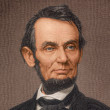
Recently, two prominent Catholic women—Kathleen Sebelius in an address to the graduates of Georgetown University’s public policy school, and Maureen Dowd in a column published in the New York Times—delivered strong statements about the Church’s role in civil society. Dowd’s column was more or less a screed, while Sebelius’s address was relatively measured in tone. Yet both were marked by some pretty fundamental misunderstandings, which have, sadly, become widespread. Echoing... Read More
Why Jesus is God: A Response to Bart Ehrman
by Bishop Robert Barron
Filed under Jesus
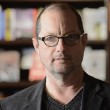
Well, it’s Easter time, and that means that the mainstream media and publishing houses can be counted upon to issue de-bunking attacks on orthodox Christianity. The best-publicized of these is Bart Ehrman’s latest book How Jesus Became God: The Exaltation of a Jewish Preacher from Galilee. Many by now know at least the outlines of Ehrman’s biography: once a devout Bible-believing evangelical Christian, trained at Wheaton College, the alma mater of Billy Graham, he saw the light and became... Read More
The Acts We Perform and the People We Become
by Bishop Robert Barron
Filed under Morality
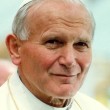
From the 1950’s through the late 1970’s Karol Wojtyla (later Pope John Paul II) was a professor of moral philosophy at the Catholic University of Lublin in Poland, specializing in sexual ethics and what we call today “marriage and family life.” He produced two important books touching on these matters, The Acting Person, a rigorously philosophical exploration of Christian anthropology, and Love and Responsibility, a much more accessible analysis of love, sex, and marriage. These texts provided... Read More
“Cosmos” and One More Telling of the Tired Myth
by Bishop Robert Barron
Filed under Christianity and Science
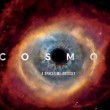
Seth MacFarlane, well known atheist and cartoonist, is the executive producer of the remake of “Cosmos,” which recently made its national debut. The first episode featured, along with the science, an animated feature dealing with the sixteenth century Dominican friar Giordano Bruno, who was burned at the stake by Church officials. A brooding statue of Bruno stands today in the Campo de’ Fiori in Rome on the very spot where the unfortunate friar was put to death. In MacFarlane’s cartoon,... Read More
Tolerance, Choice, Argument, and Religion
by Bishop Robert Barron
Filed under Religion
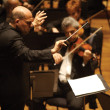
Pew Forum recently released the results of their study on religion in America. In accord with many surveys over the past fifty years, this poll showed that the vast majority (over 90%) of Americans believe in God but that an increasing number prefer their own spiritual experience to the dogmas and doctrines of traditional Christianity. Also, there is, among Americans, a general acceptance of positive, life-affirming beliefs but a deep suspicion of negative ideas such as divine judgment and hell. The... Read More
Why Goodness Depends on God
by Bishop Robert Barron
Filed under Morality
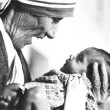
One of the most common observations made by opponents of religion is that we don't need God in order to have a coherent and integral morality. Atheists and agnostics are extremely sensitive to the charge that the rejection of God will conduce automatically to moral chaos. Consequently, they argue that a robust sense of ethics can be grounded in the consensus of the human community over time or in the intuitions and sensibilities of decent people. What I would like to do is lay out, in very brief... Read More
Beating a Catholic Straw-Man: A Review of “The Swerve”
by Bishop Robert Barron
Filed under Book Reviews, History
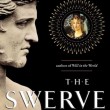
In 2005, Harvard scholar Stephen Greenblatt published a wonderful book on Shakespeare called Will in the World: How Shakespeare Became Shakespeare. Witty, insightful and surprising, it caused thousands of people, including your humble scribe, to look at the Bard with new eyes. Thus it was with great anticipation that I opened my copy of Greenblatt’s latest The Swerve: How the World Became Modern. Like its forebear, this new book is indeed lively, intelligent and fun to read, but as I moved through... Read More
Woody Allen the Moralist
by Bishop Robert Barron
Filed under Anthropology
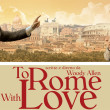
Who would have thought that Woody Allen, who twenty years ago was separating from his longtime girlfriend to notoriously marry her adopted daughter, would emerge as a defender of what can only be called traditional morality? And yet, I find that conclusion unavoidable after viewing the writer-director’s recent offering, “To Rome With Love.” This film is the latest in a series of Woody Allen movies—“Match Point,” "Vicky Christina Barcelona,” “Midnight in Paris”—celebrating great... Read More
A Tale of Two Hitchens
by Bishop Robert Barron
Filed under Atheism
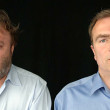
Over the years, I’ve written often about the late Christopher Hitchens, who over the last decade has probably been the world’s most prominent atheist. When we learned of his terminal cancer, I did a piece on the CNN blog, urging Christians to pray for Hitchens—and to my astonishment, this benign recommendation was met with an extraordinarily negative reaction from atheists. But that’s a story for another day. What I'd like to write about today concerns a recent vacation on which I took two... Read More
What God Is and Isn’t
by Bishop Robert Barron
Filed under God's Nature
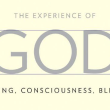
The most signal contribution of David Bentley Hart's new book, The Experience of God: Being, Consciousness, and Bliss (Yale University Press, 2013), is to clarify that serious theists and atheists, though they debate frequently concerning the reality of God, are hardly ever using the word "God" in the same way. This fundamental equivocation contributes massively to the pointlessness and meanness of many of these discussions. It is not so much that Christopher Hitchens and Richard Dawkins disagree... Read More







